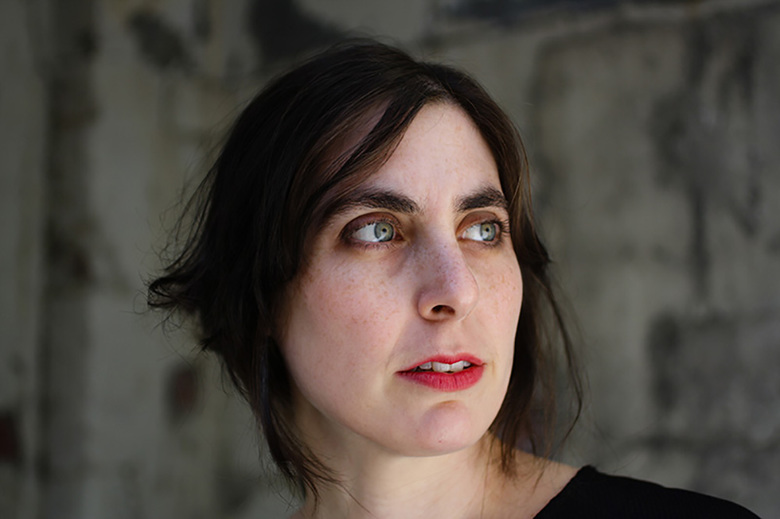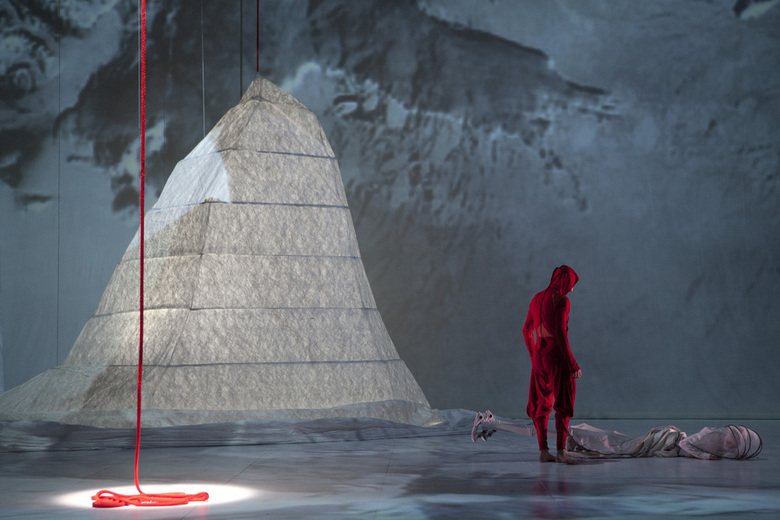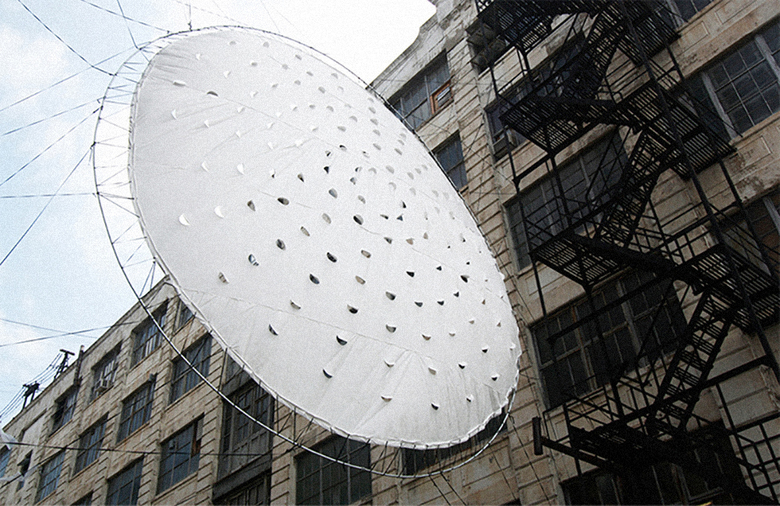2013 Wheelwright Prize Winner
Brooklyn's Gia Wolff is the recipient of the first traveling fellowship open to architects outside of Harvard GSD since 1935.
Brooklyn-based architect Gia Wolff has been selected as recipient of the Harvard University Graduate School of Design's $100,000 Wheelwright Prize for her proposal, Floating City: The Community-Based Architecture of Parade Floats. For the first time since its inception in 1935 the prize (formerly known as the Arthur Wheelwright Traveling Fellowship) was open to architects outside of the GSD, although Wolff graduated from Harvard GSD in 2008.
At an event at the Harvard Club on May 15 that World-Architects attended, juror K. Michael Hays praised the strong connection between Wolff's proposal and her practice to date. Some of the latter (pictured at left) include "Stargazer," a planetarium that was her thesis project at Harvard; "69°S," a set design for the Phantom Limb Company, in which icebergs transformed themselves throughout the course of the performance; and Portaali, an installation inserted between industrial buildings in Brooklyn that was a canvas for projections at night. Since graduation Wolff has also worked with Acconci Studio, LOT-EK, Adjaye Associates, and Architecture Research Office (ARO), and teaches at Cooper Union and Pratt.
GSD Dean Mohsen Mostafavi spoke before Wolff presented some of her work and proposal, saying that the "gift" carries some "incredible ethical values," because it does not have any requirements for output. The $100,000 can be used by Wolff in any manner she sees fit, and for her project that will focus on community-built parade floats in Rio de Janeiro (Brazil), Goa (India), Nice (France), Santa Cruze de Tenerife (Spain), and Viarreggio (Italy), the money will most like be used for extensive travel, lodging and documentation. Parade floats seem an unlikely topic for architectural investigation, but the connection to her performance-based projects, as Hays mentioned, is clear. Here's hoping this is not the last we hear from Wolff on the subject.
Brooklyn-based architect Gia Wolff has been selected as recipient of the Harvard University Graduate School of Design's $100,000 Wheelwright Prize for her proposal, Floating City: The Community-Based Architecture of Parade Floats. For the first time since its inception in 1935 the prize (formerly known as the Arthur Wheelwright Traveling Fellowship) was open to architects outside of the GSD, although Wolff graduated from Harvard GSD in 2008.
At an event at the Harvard Club on May 15 that World-Architects attended, juror K. Michael Hays praised the strong connection between Wolff's proposal and her practice to date. Some of the latter (pictured at left) include "Stargazer," a planetarium that was her thesis project at Harvard; "69°S," a set design for the Phantom Limb Company, in which icebergs transformed themselves throughout the course of the performance; and Portaali, an installation inserted between industrial buildings in Brooklyn that was a canvas for projections at night. Since graduation Wolff has also worked with Acconci Studio, LOT-EK, Adjaye Associates, and Architecture Research Office (ARO), and teaches at Cooper Union and Pratt.
GSD Dean Mohsen Mostafavi spoke before Wolff presented some of her work and proposal, saying that the "gift" carries some "incredible ethical values," because it does not have any requirements for output. The $100,000 can be used by Wolff in any manner she sees fit, and for her project that will focus on community-built parade floats in Rio de Janeiro (Brazil), Goa (India), Nice (France), Santa Cruze de Tenerife (Spain), and Viarreggio (Italy), the money will most like be used for extensive travel, lodging and documentation. Parade floats seem an unlikely topic for architectural investigation, but the connection to her performance-based projects, as Hays mentioned, is clear. Here's hoping this is not the last we hear from Wolff on the subject.



